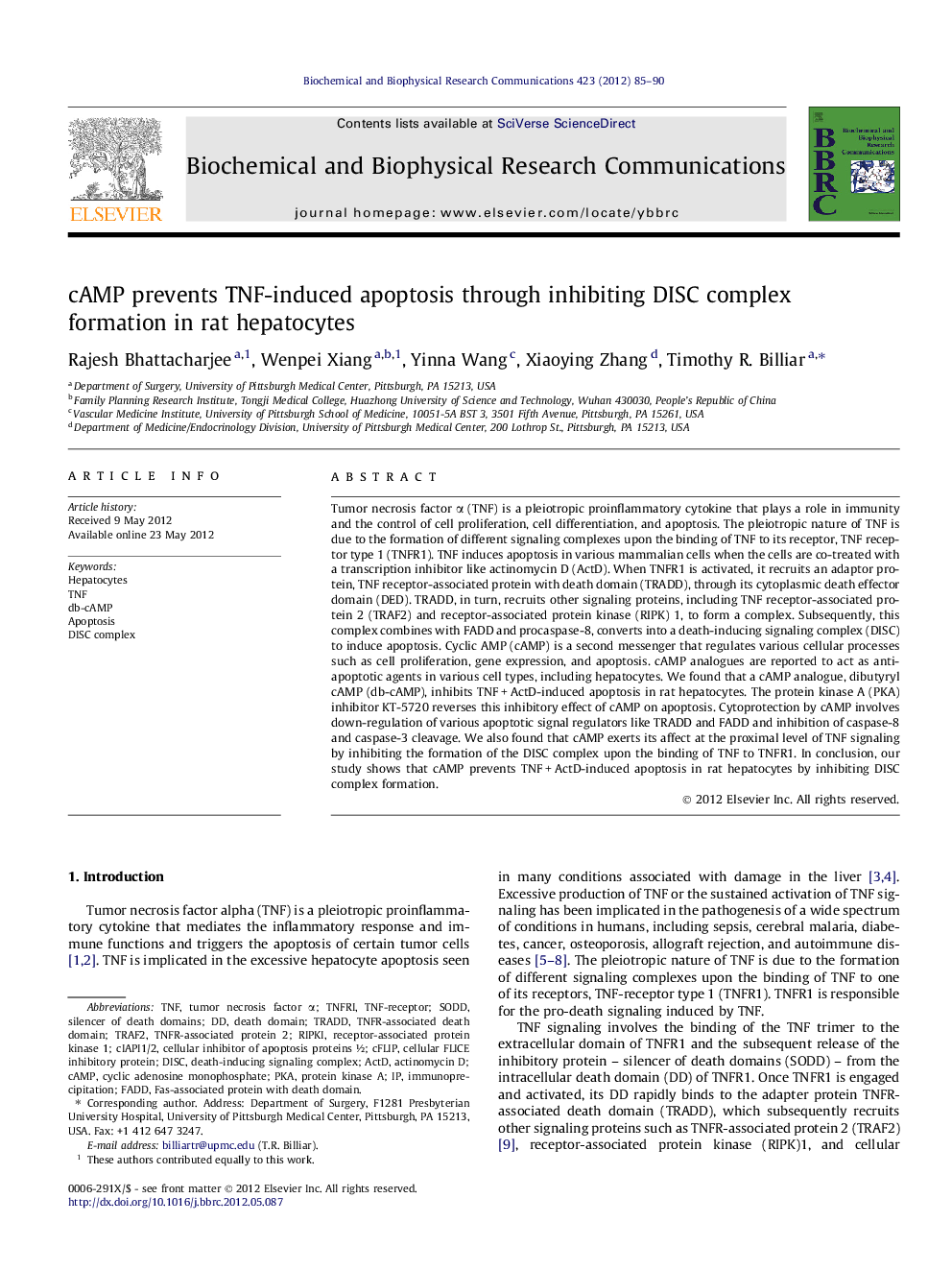| Article ID | Journal | Published Year | Pages | File Type |
|---|---|---|---|---|
| 1929443 | Biochemical and Biophysical Research Communications | 2012 | 6 Pages |
Tumor necrosis factor α (TNF) is a pleiotropic proinflammatory cytokine that plays a role in immunity and the control of cell proliferation, cell differentiation, and apoptosis. The pleiotropic nature of TNF is due to the formation of different signaling complexes upon the binding of TNF to its receptor, TNF receptor type 1 (TNFR1). TNF induces apoptosis in various mammalian cells when the cells are co-treated with a transcription inhibitor like actinomycin D (ActD). When TNFR1 is activated, it recruits an adaptor protein, TNF receptor-associated protein with death domain (TRADD), through its cytoplasmic death effector domain (DED). TRADD, in turn, recruits other signaling proteins, including TNF receptor-associated protein 2 (TRAF2) and receptor-associated protein kinase (RIPK) 1, to form a complex. Subsequently, this complex combines with FADD and procaspase-8, converts into a death-inducing signaling complex (DISC) to induce apoptosis. Cyclic AMP (cAMP) is a second messenger that regulates various cellular processes such as cell proliferation, gene expression, and apoptosis. cAMP analogues are reported to act as anti-apoptotic agents in various cell types, including hepatocytes. We found that a cAMP analogue, dibutyryl cAMP (db-cAMP), inhibits TNF + ActD-induced apoptosis in rat hepatocytes. The protein kinase A (PKA) inhibitor KT-5720 reverses this inhibitory effect of cAMP on apoptosis. Cytoprotection by cAMP involves down-regulation of various apoptotic signal regulators like TRADD and FADD and inhibition of caspase-8 and caspase-3 cleavage. We also found that cAMP exerts its affect at the proximal level of TNF signaling by inhibiting the formation of the DISC complex upon the binding of TNF to TNFR1. In conclusion, our study shows that cAMP prevents TNF + ActD-induced apoptosis in rat hepatocytes by inhibiting DISC complex formation.
► cAMP blocks cell death induced by TNF and actinomycin D in cultured hepatocytes. ► cAMP blocks NF-κB activation induced by TNF and actinomycin D. ► cAMP blocks DISC formation following TNF and actinomycin D exposure. ► cAMP blocks TNF signaling at a proximal step.
